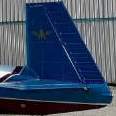Help Me With My Hot Start Technique (or Lack Thereof)
-
Members Online
- Greg Ellis
- AndreiC
- CalebH
- Crawfish
- Marc_B
- jlunseth
- Dustoff49
- JustusSJ
- Ethan
- exM20K
- AviH
- Niko182
- CCAS
- Planegary
- wombat
- Don Gates
- 1967 427
- Schllc
- 802flyer
- Bob Weber
- Vance Harral
- Steve M
- PilotX
- ToddCC22
- Utah20Gflyer
- fastandfar
- sdmideas
- DonMuncy
- thomas1142
- Dialed In
- takair
- ohdub
- Philofficer
- affricate
- BlueSky247
- clh
- hammdo
- pkellercfii
- hypertech
- Mathias
- catchman86
- outermarker


Recommended Posts
Join the conversation
You can post now and register later. If you have an account, sign in now to post with your account.